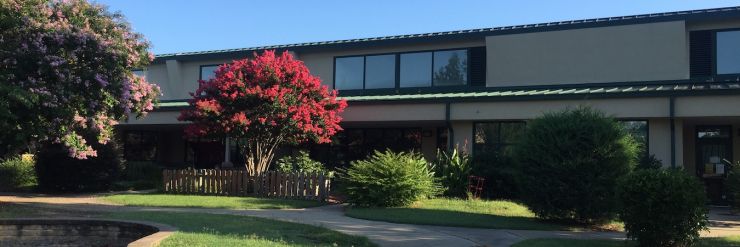Sterling's Diversity, Equity, & Inclusion (DEI) Mission:
Sterling Montessori values diversity, prioritizes equity, and commits to being an inclusive school community which is critical to meeting our Montessori mission and affirming the full humanity of all community members.
Sterling's Diversity, Equity, & Inclusion (DEI) Vision:
We envision our community will value diverse perspectives and celebrate differences that honor every unique individual. We approach this work with humility, actively seeking to understand the complex and rich identities of self and others.
We commit to ongoing education, open dialogue, self-reflection, and curricula that embraces diversity and inclusion as we guide our students in becoming responsible and engaged citizens of the world. We will proactively and continually evaluate and refine our policies and practices and will dedicate the appropriate resources to ensure we embody these beliefs every day.
Guided by these principles, we are intentional in advocating for and engaging all community members around our multiple identities, including but not limited to: race, age, gender identity and expression, ethnicity, family background and composition, ability/disability, language, learning styles, religion, sexuality, and socioeconomic status.
DEI Frequently Asked Questions
As conversations continue and initiatives progress, this FAQ will be updated to reflect the development of these important efforts.
For more information on the vocabulary of DEI, please visit https://www.racialequitytools.org/glossary
What is Diversity, Equity, and Inclusion (DEI)?
-
Diversity: Diversity refers to all of the characteristics that make individuals different from each other. Conceptually, it often includes primary characteristics, like race, age, gender or sex, sexual orientation, ethnicity, mental and physical abilities, and secondary characteristics, like education, income, religion, work experience, language skills, geographic location, and family status.
-
Equity: Equity is the process of ending systematic discrimination against people based on their identity or personal characteristics. It involves the use of programs and policies to create similar outcomes for members of groups that are historically underrepresented and individuals of differing backgrounds.
-
Inclusion: Inclusion exists when traditionally marginalized individuals and groups feel a sense of belonging and are empowered to participate in majority culture as full and valued members of the community, shaping and redefining that culture in different ways.
Definitions are provided by Damon A. Williams in Strategic Diversity Leadership (Stylus, 2013)
See also: https://ideal.com/diversity-equity-inclusion/
How does DEI work connect to Montessori Education?
As an AMS Accredited school that teaches the full scope and sequence of the Cosmic Education Curriculum, we share the AMS belief that “basic human rights such as freedom, dignity, safety, and equitable treatment…drive the Montessori commitment to education for peace and social justice.”
For more information, visit The American Montessori Society (AMS).
Why is DEI important at Sterling?
DEI work is important at Sterling because we are a school community full of children from diverse cultural backgrounds. It is important that all our students have a sense of belonging and all community members feel welcome. This sense of belonging and inclusivity improves self-esteem, drives academic learning and growth, and finally, helps them become global citizens.
Sterling’s commitment to DEI work stems from our most recent Strategic Plan (2020-2023) and the strategic goals of stewardship, culture, communication, Montessori, and inclusion and equity.
What is Anti-Bias and Anti-Racist (ABAR) education?
The purpose of Anti-Bias education is to create safe and supportive learning environments for all children. The 4 goals of Anti-Bias Education* are that each child will:
-
Demonstrate self-awareness, confidence, family pride, and positive social identities
-
Express comfort and joy with human diversity; accurate language for human differences, and deep, caring human connections.
-
Increasingly recognize unfairness, have language to describe unfairness, and understand that unfairness hurts
-
Demonstrate empowerment and the skills to act, with others or alone, against prejudice and/or discriminatory actions
*From Anti-Bias Education by Derman-Sparks & Olsen Edwards
What is the connection between DEI and ABAR practices?
DEI is a set of practices and policies that help all members of an organization feel welcomed. The hope is that our strategic DEI commitments will help all Sterling community members reach their full potential. ABAR educational practices, on the other hand, are a set of culturally responsive teaching strategies that help educators create inclusive learning environments.
Here are Anti-Bias, Anti-Racist (ABAR) family, student and teacher resources from AMS to support the work of creating and promoting a culture of compassion, kindness and equitability in the world.




